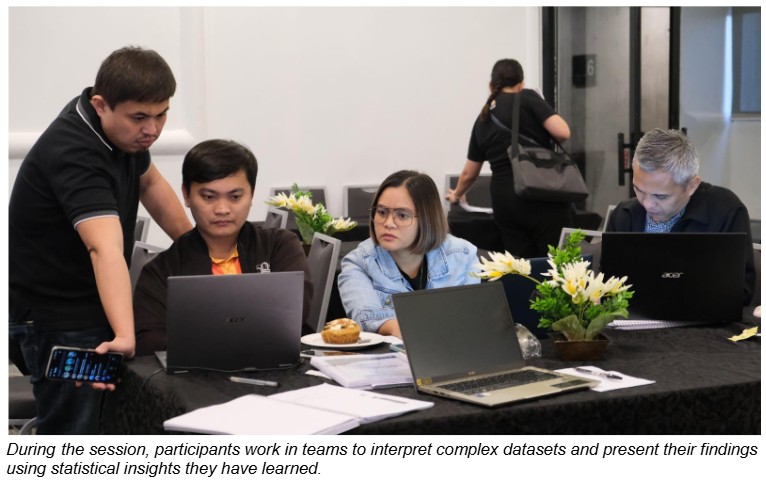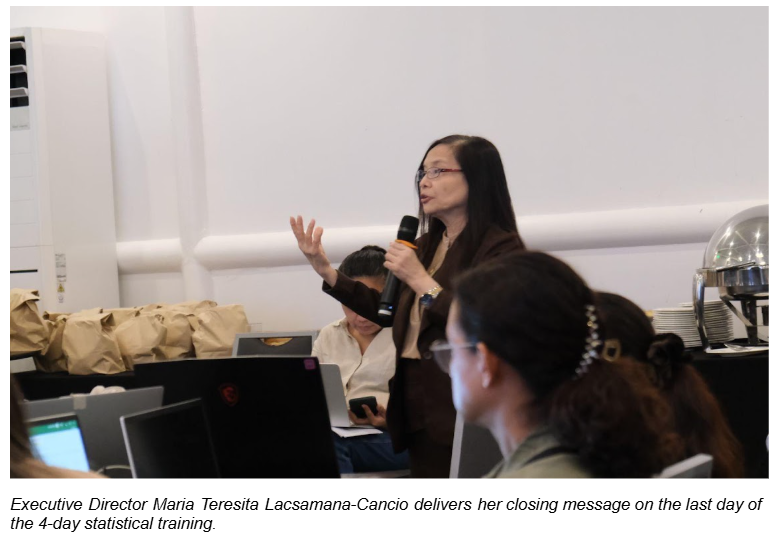
Quezon City – Data is increasingly central to decision-making worldwide and the need for statistical proficiency and literacy is steadily rising. Cognizant of this, the National Conciliation and Mediation Board (NCMB), as an organization that relies on data to create well-founded policies, believes in the importance of equipping its personnel with the necessary skills to navigate today’s information-driven world. Hence, by promoting statistical education among its employees, the Board seeks to foster a more informed, data-savvy workforce capable of addressing the challenges of the 21st century.
With this as backdrop, the Board, in collaboration with the University of the Philippines School of Statistics (UPSS) through the UP Statistical Center Research Foundation, Inc. (UPSCRFI) held a four-day training workshop on Basic Statistics with Exploratory Data Analysis on December 2-5, 2024 at B Hotel, Scout Rallos St., Brgy. Laging Handa, Quezon City.
The statistics training program covered a wide range of topics, including data collection methods, sampling techniques, data presentation, summary measures, exploratory data analysis, estimation, and hypothesis testing. Using different datasets on Alternative Dispute Resolution (ADR) cases, the annual capacity development activity enhanced participants’ skills in analyzing complex case data and boosted their confidence in making data-driven decisions and policies.

Executive Director Maria Teresita Lacsamana-Cancio highlighted that as the Board continues to rely on data for strategic planning, optimizing operations, and improving outcomes, proficiency in statistical methods has become an essential skill. “The ability to analyze and interpret data is no longer an option but a critical skill in today’s data-centric environment. The Central Office organized this training to provide you with a solid foundation in statistical concepts that will enable you to make informed decisions and contribute meaningfully to the lives of the workers,” said ED Cancio.
As the workshop concluded, the participants were left with a deeper appreciation and understanding of the role statistics play in shaping outcomes across various domains and a greater sense of preparedness for leveraging data in their respective works. As data remains crucial in shaping the Board’s future, it continues to provide valuable opportunities to upskill its personnel and stay ahead in this rapidly evolving landscape.
end/nvg






 Views Today : 666
Views Today : 666 Total views : 619121
Total views : 619121

